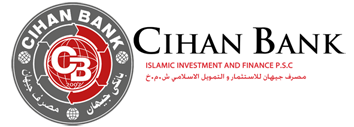What is Islamic Banking?
Islamic banking is defined as banking system which is in consonance with the spirit, ethos and value system of Islam and governed by the principles laid down by Islamic Shariah. Interest free banking is a narrow concept denoting a number of banking instruments or operations which avoid interest. Islamic banking, the more general term, is based not only to avoid interest-based transactions prohibited in Islamic Shariah but also to avoid unethical and un-social practices. In practical sense, Islamic Banking is the transformation of conventional money lending into transactions based on tangible assets and real services. The model of Islamic banking system leads towards the achievement of a system which helps achieve economic prosperity.
What is Meant By Riba?
The word “Riba” means excess, increase or addition, which correctly interpreted according to Shariah terminology, implies any excess compensation without due consideration (consideration does not include time value of money). This definition of Riba is derived from the Quran and is unanimously accepted by all Islamic scholars. The meaning of Riba has been clarified in the following verses of Quran (Surah Al Baqarah 2:278-9) “O those who believe; fear Allah and give up what still remains of the Riba if you are believers. But if you do not do so, then be warned of war from Allah and His Messenger. If you repent even now, you have the right of the return of your principal; neither will you do wrong nor will you be wronged.”
What is interest? Is there any difference between interest and Riba?
The origination of term interest dates back to 17th century with the emergence of banking system at global level. Interest means giving and/or taking of any excess amount in exchange of a loan or on debt. Hence, it carries the same meaning/value as that of Riba as defined in the previous question. Further, it is narrated that “the loan that draws interest is Riba”
What is the difference between conventional banking and Islamic banking?
The following are the main differential points between conventional banking and Islamic banking.
What is meant by Shariah/Islamic Law?
Shariah lexically means a way or path. In Islam Shariah refers to the divine guidance and laws given by the Holy Quran, the Hadith (sayings) of the Prophet Muhammad (Peace Be Upon Him) and supplemented by the juristic interpretations by Islamic scholars. Shariah embodies all aspects of the Islamic faith, including beliefs and practices. Islamic Shariah or the divine law of Islam is derived from the following four sources: 1. The Holy Quran 2. The Sunnah of the Holy Prophet (Peace Be Upon Him) 3. Ijma’ (consensus of the Ummah) 4. Qiyas (Anology)
The end result of Islamic Banking and Conventional Banking is the same. Why do they appear similar?
The validity of a transaction does not depend on the end result but rather the process and activities executed and the sequence thereof in reaching the end. If a transaction is done according to the rules of Islamic Shariah it is halal even if the end result of the product may look similar to conventional banking product. For example a normal McDonalds burger in USA and Pakistan may look similar, smell similar and taste similar but the former is haram and the later is halal due to its compliance of Islamic guidelines of slaughtering animals. Similarly, if a person is feeling hungry, he may steal a piece of bread and eat or alternatively buy a piece of bread to eat. The apparent end result would be same but one is permissible in Shariah and the other is not allowed. The same is also true for Islamic and conventional banking. Therefore, it can be concluded that it is the underlying transaction that makes something “Halal” (allowed) or “Haram” (prohibited) and not the result itself. Apparently, Islamic banks 17 may look similar to conventional banks, however the contracts and product structures used by Islamic banks are quite different from that of the conventional bank. In the verse 2:275 of the Holy Quran, Allah the Almighty has responded to the apparent similarity between trade and interest by resolutely informing that he has permitted trade and prohibited Riba (though they may look similar to someone).
What are the major modes of Islamic banking and finance?
The following are the modes of finance which are three categories:
1- Participatory modes of Finance (a) Mudarabah, (b) Musharakah.
2- Non Participatory modes of Finance: (a) Murabaha, (b) Musawamah, (c) Salam, (d) Istisna, (e) Ijarah, (f) Ijarah wa Iqtina (Ijarah Muntahiyyah Bittamleek)
3- Sub contracts: (a) Wakalah, (b) Kafalah, (c) Rahn



